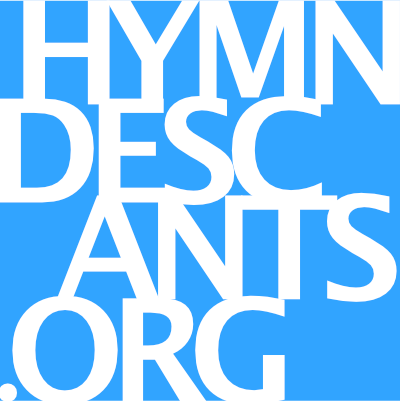1 Hymnal verse - 2 unison over ad lib - 3 descant (demo SA 8 bars, SATB 7 bars tune: tenor)
1 hymnal (Noble) voices satb
Fairest Lord Jesus,
Ruler of all nature,
O thou of God and man the Son;
thee will I cherish,
thee will I honor,
thou, my soul’s glory, joy and crown.
2. alt. harm.
Fair are the meadows,
fairer still the woodlands,
robed in the blooming garb of spring;
Jesus is fairer,
Jesus is purer,
who makes the woeful heart to sing.
3 descant (SA, then SATB; tune in the tenor)
Fair is the sunshine,
fairer still the moonlight,
and all the twinkling, starry host:
Jesus shines brighter,
Jesus shines purer,
than all the angels heaven can boast.
One would think that such a comfortable, natural pairing of hymn and tune would have an equally lovely backstory. But instead, one hardly knows where to begin with the mess of musical and editorial entrails from which it emerges - an editorially overworked and reduced hymn married to a tune with a tenuous naming convention. In Glory to God: a Companion Carl Daw wrote "This hymn provides a classic example of the persistence of erroneous information." Due due to misattribution of the tune to Liszt, who quoted it in his oratorio, The Legend of Saint Elizabeth, the name ST ELIZABETH was assigned to rescue it from an offensive name derived from the oratorio (which, though still in use, we won't bother to repeat). In truth, the tune has nothing to do with Liszt or the historical St. Elizabeth of Thuringia. It is instead traditionally considered - without a shred of extant evidence - to be a folk tune from Silesia, an eastern European area now encompassed primarily by Poland. The hymn Fairest Lord Jesus is from a 1677 German original, Schönster Herr Jesu. It was originally five verses, beginning with Jesus shining fairer than Creation, then the Sun and Moon, the Forests and Woodlands, Heaven and Earth, and concluding with an invocation of the sacrament of communion. This hymn has had several German variations and translations, though the English versions have filtered the text through the Romantic lens of 19th C. naturalism, settling on a three verse configuration celebrating the God of creation, some add a fourth verse which bring 'nations' into the mix, strangely equating God's enduring sacred work of nature with the profane human artifice of 'nations.'
References
- David's Hymn Blog, “Fairest Lord Jesus”, David Russell Hamrick
Fairest Lord Jesus
Fair is the sunshine,
Fairer still the moonlight,
And all the twinkling, starry host:
Jesus shines brighter,
Jesus shines purer,
Than all the angels heaven can boast

